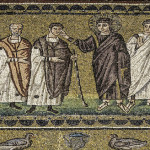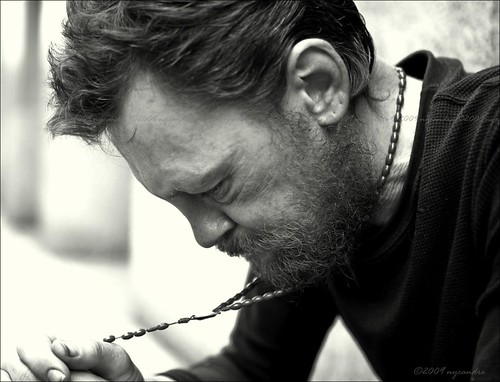We run our website the way we wished the whole internet worked: we provide high quality original content with no ads. We are funded solely by your direct support. Please consider supporting this project.
The Suffering of God
This seems like a good follow-up post from what Greg posted yesterday. Charisma posted this reflection on the problem of evil and the suffering of God. It’s a great summary of our thinking about what accounts for the kind of world we see where tragedies like Newtown occur.
From the article:
C. S. Lewis sagely observed, “Try to exclude the possibility of suffering which the order of nature and the existence of free-wills involve, and you find that you have excluded life itself … Free will, though it makes evil possible, is also the only thing that makes possible any love or goodness or joy worth having. A world of automata–of creatures that work like machines–would hardly be worth creating.”
Put another way, love cannot be coerced; it must be freely chosen.
Related Reading

Making God in Our Own Image
In this video, Greg introduces the idea of how we make God into our own image instead of allowing God to define himself through the revelation of Jesus. In an interview performed by Travis Reed from theworkofthepeople.com, we have a basic, quick introduction to a core element of Greg’s theology. This is a great piece to…

Podcast: Does Evil Really Exist?
Greg considers the idea that evil is simply the privation of good. He then offers a better explanation. http://traffic.libsyn.com/askgregboyd/Episode_0116.mp3

Loving a Twilight Zone God?
David D. Flowers posted this insightful reflection over on his blog about an episode of The Twilight Zone and what it says about some pop views of God. Can we really love a God that exercises this kind of random control just because he can? We can certainly fear a God like this, but can…

Does God Still Heal?
In the ancient world Jesus was known first and foremost as an exorcist and a healer. These two activities are mentioned in every summary of Jesus’s ministry found in the Gospels. It’s common for Western Christians today to accept that infirmities (sickness, disease, injuries, disabilities and deformities) are part of God’s mysterious plan for their…

Forgiving the Unforgivable
Osheta Moore wrote a courageous and challenging post last week entitled Washing the Feet of the Steubenville Rapists. It’s not an easy read, and if you’re vulnerable to triggers in this area, you might want to exercise caution. But Osheta offers a glimpse of redemption in the darkest of places. Can we move towards forgiveness…

Why We Can’t Know Why Bad Things Happen
Science has demonstrated that the slightest variation in a sufficiently complex process at one point may cause remarkable variations in that process at another point. It’s called chaos theory. The flap of a butterfly wing in one part of the globe can be, under the right conditions, the deciding variable that brings about a hurricane…

